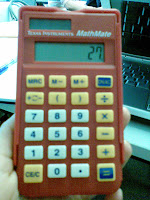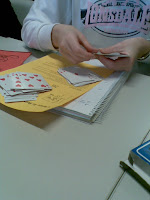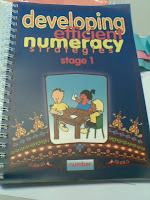After six weeks being in EAB023 class, I believe that :
1. Mathematics in Early Childhood does not only involve numbers, it involves other mathematical concepts as well.
2. When it comes to their mathematics learning, all children should be treated as capable learners who know a great deal and who can learn a great deal more.
3. Teaching and learning of Mathematics in the early years should be as interesting as possible.
4. There should be a balance between accuracy and flexibility in developing computations of the early years learners. In solving a math problem, the process of solving the problem should be taken into account, rather than the answer of the problem.
5. There are a lot of mathematics games that teach and teachers should make use of them in order to assist learners in explorations of mathematical concepts.









